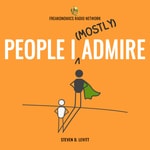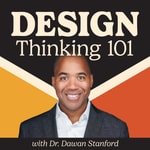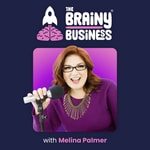People I (Mostly) Admire – Détails, épisodes et analyse
Détails du podcast
Informations techniques et générales issues du flux RSS du podcast.

People I (Mostly) Admire
Freakonomics Radio + Stitcher
Fréquence : 1 épisode/9j. Total Éps: 193

Classements récents
Dernières positions dans les classements Apple Podcasts et Spotify.
Apple Podcasts
🇨🇦 Canada - societyAndCulture
31/07/2025#75🇬🇧 Grande Bretagne - societyAndCulture
31/07/2025#19🇬🇧 Grande Bretagne - General
31/07/2025#100🇺🇸 États-Unis - societyAndCulture
31/07/2025#14🇺🇸 États-Unis - General
31/07/2025#99🇨🇦 Canada - societyAndCulture
30/07/2025#100🇬🇧 Grande Bretagne - societyAndCulture
30/07/2025#23🇺🇸 États-Unis - societyAndCulture
30/07/2025#62🇨🇦 Canada - societyAndCulture
29/07/2025#98🇨🇦 Canada - societyAndCulture
28/07/2025#69
Spotify
Aucun classement récent disponible
Liens partagés entre épisodes et podcasts
Liens présents dans les descriptions d'épisodes et autres podcasts les utilisant également.
See all- https://amzn.to/3Ru84u5
2 partages
- https://amzn.to/49q6sab
2 partages
Qualité et score du flux RSS
Évaluation technique de la qualité et de la structure du flux RSS.
See allScore global : 69%
Historique des publications
Répartition mensuelle des publications d'épisodes au fil des années.
139. How PETA Made Radical Ideas Mainstream
Épisode 139
samedi 31 août 2024 • Durée 01:00:03
People for the Ethical Treatment of Animals founder Ingrid Newkirk has been badgering meat-eaters, fur-wearers, and circus-goers for more than 40 years. For a woman who’s leaving her liver to the president of France in her will, she sounds quite sensible when she tells Steve what we can learn from animals, why she supports euthanasia, and who’ll get her other organs.
- SOURCE:
- Ingrid Newkirk, founding president of People for the Ethical Treatment of Animals.
- RESOURCES:
- "Paradoxical Gender Effects in Meat Consumption Across Cultures," by Christopher J. Hopwood, Jahn N. Zizer, Wiebke Bleidorn, et al. (Nature Scientific Reports, 2024).
- "PETA President Bequeaths Her Rump to a Reality Show," (PETA.org, 2023).
- Animalkind: Remarkable Discoveries about Animals and Revolutionary New Ways to Show Them Compassion, by Ingrid Newkirk (2020).
- "One Last U.S. Medical School Still Killed Animals to Teach Surgery. But No More," by Darryl Fears (The Washington Post, 2016).
- "The Naked and the Dead," by Katie Glass (The Times, 2013).
- "The Betrayal of 'No-Kill' Sheltering," by Ingrid Newkirk (PETA YouTube channel, 2013).
- "The Lab-Monkey Controversy That Launched the Animal-Rights Movement," by Caroline Fraser (The New Yorker, 1993).
- EXTRAS:
- "Suleika Jaouad’s Survival Mechanisms," by People I (Mostly) Admire (2024).
- "Jane Goodall Changed the Way We See Animals. She’s Not Done," by People I (Mostly) Admire (2022).
- "Peter Singer Isn’t a Saint, But He’s Better Than Steve Levitt," by People I (Mostly) Admire (2022).
- "Bruce Friedrich Thinks There’s a Better Way to Eat Meat," by People I (Mostly) Admire (2021).
- Project Donor.
Sendhil Mullainathan Thinks Messing Around Is the Best Use of Your Time (Update)
Épisode 37
samedi 24 août 2024 • Durée 46:54
Revisiting Steve’s 2021 conversation with the economist and MacArthur “genius” about how to make memories stickier, why change is undervalued, and how to find something new to say on the subject of scarcity.
- SOURCE:
- Sendhil Mullainathan, university professor of computation and behavioral science at the University of Chicago Booth School of Business.
- RESOURCES:
- "Fictional Money, Real Costs: Impacts of Financial Salience on Disadvantaged Students," by Claire Duquennois (American Economic Review, 2022).
- "Do Financial Concerns Make Workers Less Productive?" by Supreet Kaur, Sendhil Mullainathan, Suanna Oh, and Frank Schilbach (NBER Working Paper, 2022).
- Subtract: The Untapped Science of Less, by Leidy Klotz (2021).
- "Heads or Tails: The Impact of a Coin Toss on Major Life Decisions and Subsequent Happiness," by Steve Levitt (NBER Working Paper, 2016).
- Scarcity: Why Having Too Little Means So Much, by Sendhil Mullainathan and Eldar Shafir (2013).
- "The End of History Illusion," by Jordi Quoidbach, Daniel T. Gilbert, and Timothy D. Wilson (Science, 2013).
- EXTRAS:
- "Leidy Klotz on Why the Best Solutions Involve Less — Not More," by People I (Mostly) Admire (2021).
- "Sendhil Mullainathan Explains How to Generate an Idea a Minute," by People I (Mostly) Admire (2021).
133. Pay Attention! (Your Body Will Thank You)
Épisode 133
samedi 8 juin 2024 • Durée 59:30
Ellen Langer is a psychologist at Harvard who studies the mind-body connection. She’s published some of the most remarkable scientific findings Steve has ever encountered. Can we really improve our physical health by changing our mind?
- SOURCE:
- Ellen Langer, professor of psychology at Harvard University.
- RESOURCES:
- Brave New Words: How AI Will Revolutionize Education (and Why That's a Good Thing), by Sal Khan (2024).
- "F.D.A.’s Review of MDMA Cites Health Risks and Study Flaws," by Andrew Jacobs and Christina Jewett (The New York Times, 2024).
- The Mindful Body: Thinking Our Way to Chronic Health, by Ellen Langer (2023).
- "Physical Healing as a Function of Perceived Time," by Peter Aungle and Ellen Langer (Nature: Scientific Reports, 2023).
- "Aging as a Mindset: A Study Protocol to Rejuvenate Older Adults With a Counterclockwise Psychological Intervention," by Francesco Pagnini, Cesare Cavalera, Ellen Langer, et al. (BMJ Open, 2019).
- Counterclockwise: Mindful Health and the Power of Possibility, by Ellen Langer (2009).
- "Mind-Set Matters: Exercise and the Placebo Effect," by Alia Crum and Ellen Langer (2007).
- "The Effects of Choice and Enhanced Personal Responsibility for the Aged: A Field Experiment in an Institutional Setting," by Ellen Langer and Judith Rodin (Journal of Personality and Social Psychology, 1976).
- EXTRAS:
- "The Future of Therapy Is Psychedelic," by People I (Mostly) Admire (2023).
- "Extra: An Update on the Khan World School," by People I (Mostly) Admire (2023).
- "Is This the Future of High School?" by People I (Mostly) Admire (2022).
- "What It Takes to Know Everything," by People I (Mostly) Admire (2022).
- "Sal Khan: 'If It Works for 15 Cousins, It Could Work for a Billion People,'" by People I (Mostly) Admire (2021).
- "Greg Norman & Mark Broadie: Why Golf Beats an Orgasm and Why Data Beats Everything," by People I (Mostly) Admire (2021).
- "Caverly Morgan: 'I Am Not This Voice. I Am Not This Narrative,'" by People I (Mostly) Admire (2020).
- "Does 'As If' Thinking Really Work?" by No Stupid Questions (2020).
- "Havana Wild Weekend," S28.E7 of The Simpsons (2016).
52. Max Tegmark on Why Superhuman Artificial Intelligence Won’t be Our Slave (Part 2)
Épisode 52
samedi 20 novembre 2021 • Durée 30:21
He’s an M.I.T. cosmologist, physicist, and machine-learning expert, and once upon a time, almost an economist. Max and Steve continue their conversation about the existential threats facing humanity, and what Max is doing to mitigate our risk. The co-founder of the Future of Life Institute thinks that artificial intelligence can be the greatest thing to ever happen to humanity — if we don’t screw it up.
51. Max Tegmark on Why Treating Humanity Like a Child Will Save Us All
Épisode 51
samedi 13 novembre 2021 • Durée 45:35
How likely is it that this conversation is happening in more than one universe? Should we worry more about Covid or about nuclear war? Is economics a form of “intellectual prostitution?” Steve discusses these questions, and more, with Max, an M.I.T cosmologist, physicist, and machine-learning expert — who was once almost an economist. He also tells Steve why we should be optimistic about the future of humanity (assuming we move Earth to a larger orbit before the sun evaporates our oceans).
50. Edward Miguel on Collecting Economic Data by Canoe and Correlating Conflict with Rainfall
Épisode 50
samedi 6 novembre 2021 • Durée 52:00
He’s a pioneer of using randomized control experiments in economics — studying the long-term benefits of a $1 health intervention in Africa. Steve asks Edward, a Berkeley professor, about Africa’s long-term economic prospects, and how a parking-ticket-scandal in New York City led to a major finding on corruption around the world.
49. Mathematician Sarah Hart on Why Numbers are Music to Our Ears
Épisode 49
samedi 30 octobre 2021 • Durée 46:23
Playing notes on her piano, she demonstrates for Steve why whole numbers sound pleasing, why octaves are mathematically imperfect, and how math underlies musical composition. Sarah, a professor at the University of London and Gresham College, also talks with Steve about the gender gap in mathematics and why being interested in everything can be a problem.
48. Marc Davis Can’t Stop Watching Basketball — But He Doesn’t Care Who Wins
Épisode 48
samedi 23 octobre 2021 • Durée 47:13
His childhood dream of playing in the N.B.A. led him to a career as a referee. Marc is one of the league’s top performers after over 20 seasons, but he still reviews every single one of his calls. He talks with Steve about being scrutinized by players, fans, and management; how much work — and data — go into being fair; and why he talks about race with his colleagues and his kids.
Ken Jennings on How a Midlife Crisis Led Him to Jeopardy! (People I (Mostly) Admire, Ep. 4 Replay)
samedi 16 octobre 2021 • Durée 47:46
It was only in his late twenties that America’s favorite brainiac began to seriously embrace his love of trivia. Jeopardy!’s newest host also holds the show’s “Greatest of All Time” title. Steve digs into how Ken trained for the show, what it means to have a "geographic memory," and why we lie to our children.
Mayim Bialik on the Surprising Risks of Academia and Stability of Show Biz (People I (Mostly) Admire, Ep. 2 Replay)
samedi 9 octobre 2021 • Durée 49:35
This new Jeopardy! host is best known for playing neurobiologist Amy Farrah Fowler on The Big Bang Theory, but she has a rich life outside of her acting career too, as a teacher, mother — and a real-life neuroscientist. Steve learns more about this one-time academic and Hollywood non-conformist, who is both very similar to him and also quite his opposite.









